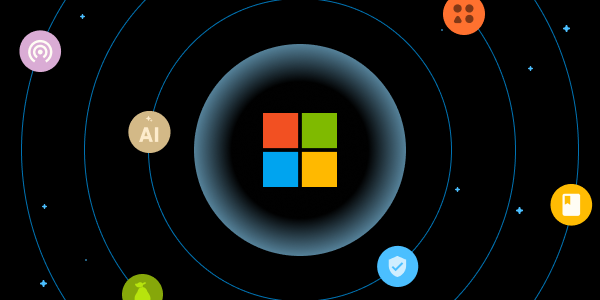Teaching with Technology: What We Get and What We Can't Forget

I am no teaching expert.
Now that we got that out of the way, let me tell you what I do know.
August 8, 2016, was the day I entered my tenth year of teaching at the same school in the same district with most of the same teaching staff. My teaching style never really progressed, changed, or innovated dramatically in all of these years. Oh, sure, I’d do something different one year that didn’t work so well the previous, I’d rethink my classroom management from time to time, and I’d change the order of my units around to shake things up a bit. But nothing really drastic.
While my teaching wasn’t at its best, I wasn’t exactly unhappy either; but there was change on the horizon. A new principal came aboard our little Ranchos Middle School family and metaphorically let loose the reins, unbuckled the bits and harnesses, and let us teachers run free. Not wild, but free. We were free to explore, free to try new things, and free to fail. It was during this time that I discovered teacher blogs (yes, it took me 6-7 years to discover them. See, no expert). I began to read about and learn from what other teachers were doing in other states and cities across the country, and in some cases, around the world.
I discovered Teacher Twitter too.
And it was through the blogs and my slowly increasing Twitter connections that I began to see what tech could do/be in the classroom. Teaching and Learning technology promised better engagement, better student-centered Learning, better test scores, better use of class time, better collaboration, better creativity, better connections to their Learning, and more.
We (our site) bought into it and implemented tech as much as we could as soon as we could. We went 1:1 Chromebooks this year, a good chunk of our staff is or will be Google Certified this year, and there is a renewed interest at the district level to send teachers to tech training that teachers want to be sent to, not what’s necessarily mandated by the D.O.
It’s beautiful. It’s Tech Heaven.
Now here comes the big but…
BUT, tech cannot, is not, will not, and should not be the savior in your classroom. That’s the educator’s job.
“How can you say that?” you ask. “You’ve only had Chromebooks in class for two weeks.”
Hear me out...
The idea of educator-as-savior gets some airplay out there in the Twitter/Blog-o-sphere, just not enough, I feel. Or, it’s just not as loud and pervasive as all the new tech talk. It gets drowned out rather quickly and easily.
You, teacher; you, administrator; you, worker in the education field...are the heart and soul of this business. You are the caring and compassion and relationship that makes this whole thing run. Your passion for the students, not the tech, is what should drive you each and every day. I don’t care how thoroughly and beautifully designed and ridiculously engaging your digital lessons are. Without a desire to build relationships and get to know and understand your students, those lessons will be as bad as daily packet work. Your students won’t care. They’ll put in, at best, the bare minimum of effort just to get it done and over with.
Students, like us, want authentic, relevant, and honest relationships. Relationships that are safe and caring, formed with appropriate boundaries, built on trust. Like bees and dogs can smell fear, students can smell inauthenticity a mile away. They can tell when a teacher is here for them or for the vacation time. They can tell when a teacher’s heart is open to them and their needs (as fickle as they might be) and when a teacher is already counting the days to the end of the year after the first day of school.
Classroom tech isn’t inherently the devil, like money isn’t inherently evil. It’s only when we misuse tech and make it The Number One Thing that we miss out on what really matters in our class: our students.
If you build the relationships and get the students to buy into what you’re doing and why, then they’ll outperform all of your expectations. All the time.
Be for your students what they need. Nobody grows when they get what they want. We grow when we get what we didn’t even know we needed.
Jump to Section
Bring the power of GoGuardian to your school or district today.





